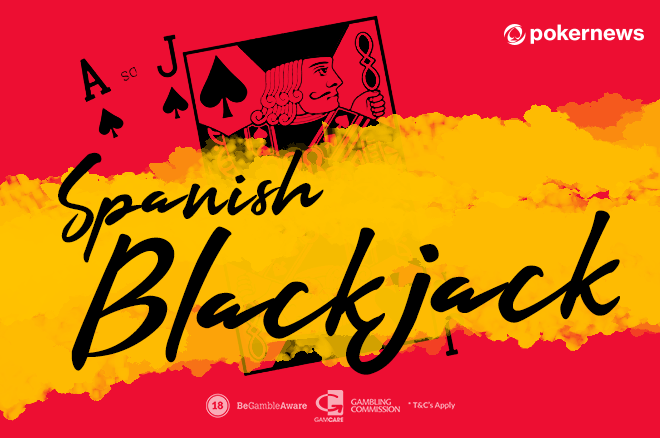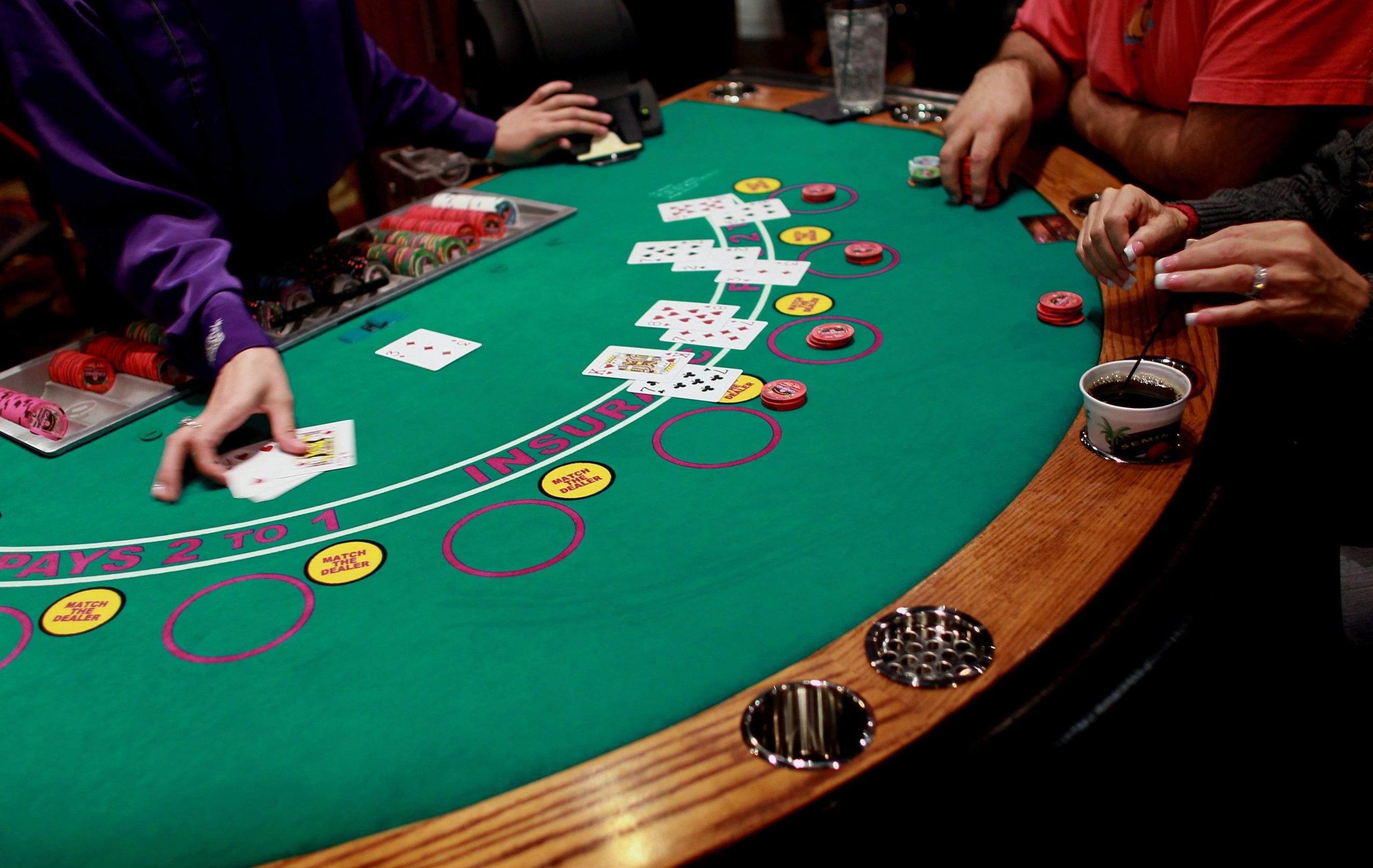Blackjack In Spanish
- Blackjack Rules In Spanish
- How To Play Spanish Blackjack
- Poker In Spanish Translation
- How To Say Blackjack In Spanish
If you like the traditional games of blackjack, but want to play a more intense game, Spanish 21 blackjack might be it.Spanish 21 Blackjack is played on a standard blackjack table using two, four, six, or eight. Spanish 21 is a Hispanic blackjack variation without 10s in which the player’s 21 always wins. The seemingly simplified Spanish 21 rules required a modified Spanish 21 strategy. In this blog post, Casinos Online discusses the difference between standard blackjack. Spanish Blackjack, also known as Spanish 21, is among the casino games with the lowest house edge a player can possibly hope for. This exciting variant of the classic casino-banked game has made. Spanish 21 Learn How To Play Spanish 21. Spanish 21 is a variation of blackjack found at casinos across the globe and online. The game is owned by Maque Publishing. A variation of 'Spanish 21' called Pontoon is available in Australia and Malaysia, but this version of Spanish 21 has significant rules differences from both regular blackjack and from Spanish. Spanish Blackjack gives players a few more options, but uses a deck of 48 cards versus 52 cards used in classic blackjack. In Spanish Blackjack, all four10 cards are removed and the Jack, Queen, and King.
Spanish 21 is a popular American variant of the traditional game of blackjack. Played worldwide and offered in the majority of land-based casinos, it is a quick-to-learn and easy-to-play alternative for when you are looking for something slightly different.
Spanish 21’s two main differences from standard blackjack is a player’s blackjack always beats the dealer’s blackjack, and the game is played with a 48-card Spanish deck, rather than the standard 52-card deck. While the latter change means the four Tens are removed, which introduces problems for players in the form of a two per cent house edge increase, it is offset by some highly flexible, player-friendly changes to the usual rules, and unique bonus payouts which make it a genuinely worthwhile variation to play.

Spanish 21 has its origins in Nevada casinos, starting off as a side-game in 1996 before exploding into mainstream recognition. It is officially owned by a gaming company known as Masque Games in the United States, but several unlicensed equivalents are played around the world. One unlicensed version is known as Pontoon, an extremely popular game here in Australia and parts of south-east Asia. Locally, Pontoon — itself a variation of blackjack and Spanish 21 — has eclipsed Spanish 21 in popularity, but the latter is still worth playing for its exciting and favourable rule twists.
Spanish 21 and Standard Blackjack: the Differences
Fundamentally, Spanish 21 has the same aim as blackjack: to acquire a hand with a greater total value than the dealer, without exceeding 21 points, otherwise known as a bust. It shares the same style of playing table and retains all of the regular blackjack jargon and terminology. However, it is enough of a spin-off of blackjack with its own bonuses and rule differences to warrant being considered its own independent game.
Spanish 21 Fixed Rules
- A player’s blackjack or any card total of 21 points always wins, regardless of what the dealer has; a rule which is thoroughly appealing to all players.
- A blackjack payout is always fixed at 3 to 2.
- 10-spot cards are removed from the six to eight Spanish decks used.
- The dealer receives an up-card and a hole card.
- If the dealer shows an Ace or face card, he/she peeks at the hole card to check for blackjack. If he/she does have blackjack, all players lose (unless they have blackjack).
- We can opt for late surrender any time, after hitting, doubling or splitting.
- Splitting is allowed and you can re-split up to three more times, including Aces.
- We can double down on any number of cards, and can hit or double down after splitting any two cards, including Aces.
Spanish 21 Varied Rules
- Spanish 21 is usually played from a six deck shoe, but eight decks are sometimes used.
- The dealer can either hit or stand on a soft 17, but will usually stand.
- Players can double double down, (re-double) up to two times after initially doubling down
Spanish 21: Bonus 21
A major facet of Spanish 21 is the massive bonus payouts awarded to players when their cards total 21: these extra winnings are called Bonus 21. These sort of bonuses, while hard to earn, are fairly rare in traditional games of blackjack, but are present in all games of Spanish 21, which is what makes this variant so popular.
The following are all the lucky hand combinations totalling 21 which earn the player a bonus payout:
- If we have five cards from any suit which total 21, the payout is 3 to 2.
- If we have six cards from any suit which add up to 21, the payout is 2 to 1.
- If we have seven cards from any suit which add up to 21, the payout is 3 to 1.
- If we reach 21 with a hand of Six/Seven/Eight, the payout is 3 to 2 for mixed suits, 2 to 1 for same suit, and 3 to 1 for those three cards all being Spades.
- If we have three Sevens from the same suit, the payout is 2 to 1.
- If we have three Sevens from mixed suits, the payout is 3 to 2.
- If we have three Sevens all of Spades, the payout is 3 to 1.
Note: The above bonuses still pay out even if the hand was a split, but any doubling negates any potential bonus.
The following hand is regarded as the ‘super bonus’ and pays out significantly more than the above, but is obviously a hell of a lot rarer:
- If you reach 21 with a three Sevens of the same suit, and the dealer’s up-card is also a Seven (of any suit), the automatic payout is $1000 for bets of $5 to $24, and $5000 for any bets made over $25, while all over players on the table receive an ‘envy bonus’ of $50.
Note: If the above hand (Seven/Seven/Seven with a dealer Seven) is made following a split or a hand which was doubled, the bonus is negated. Any other winning hands which do not include any of the above combinations pay out at even money (1 to 1).
The coveted suited Seven/Seven/Seven combination with a dealer Seven holds a probability of 1 in 668,382 if the game is being played with six decks, and 1 in 549,188 with eight decks. Every casino also employs their own modifications to the super bonus: sometimes this can mean smaller payouts or additional criteria to acquire it, so read up on each venue’s unique guidelines before playing.
Match the Dealer
Some games of Spanish 21 incorporate an additional side-bet known as Match the Dealer. This side bet is unique to Spanish 21 and applies if either or both of our first two cards dealt match the dealer’s up-card. With a house edge of three per cent, it eclipses the house edge of the main game, but Match the Dealer still has one of the lowest house advantages of any blackjack side bet.
For example:

- We draw a Seven of Clubs and a King of Hearts, and the dealer draws a Seven of Spades, this is called one non-suited match.
- If we draw a Seven of Clubs and a King of Hearts, and the dealer draws a Seven of Clubs, this is one suited match.
- If we draw a Seven of Clubs and a Seven of Hearts, and the dealer draws a Seven of Spades, this is two non-suited matches.
- If we draw a Seven of Clubs and a Seven of Hearts, and the dealer draws a Seven of Clubs, we call this one non-suited match and one suited match.
- And finally, if we draw two Sevens of Clubs, and the dealer also draw a Seven of Clubs, this is two suited matches and holds the largest payout.
The payout and house edge for a non-suited matches and suited matches depends on the number of decks used.
The match the dealer side wager holds a house edge of 3.06% in a six-deck game, and 2.99% in an eight-decks game.
Spanish 21 House Edge
Spanish 21 offers a significantly lower house edge than any blackjack variant game. The house edge can be dropped to less than 1% if we follow basic, optimal strategy, making Spanish 21, like traditional blackjack, an ideal game for those who want larger control over their returns. The house edge of Spanish 21 will depend on the rule variations of the game:
- If six decks are in play, and the dealer stands on a soft 17, the house edge is 0.37%.
- If six decks are used, and the dealer hits on a soft 17, the house edge is 0.78%
- If eight decks are being used, and the the dealer must stand on a soft 17, the house edge is 0.38%.
- If eight decks are in play, and the dealer is required to hit on a soft 17, the house edge is 0.80%.
- If re-doubling is allowed where the dealer hits on a soft 17, the house edge is 0.42% in six-deck games, and 0.45% in eight-deck games.
- If surrendering is not an available option, the house edge increase by 0.006% in a stand on soft 17 game, and by 0.018% in a hit on soft 17 game.

Blackjack Rules In Spanish
Spanish 21’s unique Super Bonus also reduces the house advantage, depending on the number of decks used and the wager amounts placed. In a six-deck game with bets of exactly $5 or $25, the Super Bonus lowers the house edge by 0.030%, and 0.036% in an eight-deck game, assuming there are no other players. At a bet of $5, the ‘envy bonus’ also lowers the house edge by 0.0015% in a six-deck game, and 0.0018% in an eight-deck game, per additional player.

Insurance bets remain a sucker bet, just like in any other game of blackjack. In Spanish 21, such a wager actually presents worse odds than other games, due to the removal of the four ten-valued cards per deck; a dealer natural blackjack thus much less likely. With a house edge of 24.7% and an unfair payout of 2 to 1 rather than 3 to 1 to match the increased risk in Spanish 21, insurance continues to be one of the poorer wagers of any casino game.
Spanish 21 holds a different twist on the traditional game of blackjack, for good entertainment value, and refreshment from the usual rules. While the removal of 10-valued cards is concerning, Spanish 21’s generous Super Bonus and other enticing extra payouts, along with the extremely favourable rule of a player blackjack always winning, are good enough rules to make the game worth playing.
US Players and Credit Card, BitCoin Deposits Accepted!
How to Play Spanish 21
How Spanish 21 is Related to Blackjack
Spanish 21 is a fast-paced variation of blackjack that has become increasingly popular. The game is played on a standard blackjack table. The main difference between Spanish 21 compared to blackjack is the removal of all 10's in the decks. Jacks, Queens, and Kings remain, but all natural 10's are removed from every deck used at the table.
If you know much about blackjack you're probably thinking that Spanish 21 holds a very high casino advantage. By removing all of the 10's, Spanish 21 gains an increase in house advantage by about 25%. However, to compensate for removing the 10's and the higher house advantage, there are very lucrative bonuses and additional rules, compared to blackjack, which bring the house advantage back down.
One of the most important rules in Spanish 21, that highly differs from blackjack, is the rule that a player's 21 always beats a dealer's 21. The additional rules and bonuses are listed below.
How To Play Spanish Blackjack
Bonus 21
When your cards equal 21 in Spanish 21, you might qualify for a Bonus 21. The chart below explains each type of bonus you can receive for achieving a total of 21.
| Cards | Suit | Payout |
|---|---|---|
| 5 Cards | 21 | 3:2 |
| 6 Cards | 21 | 2:1 |
| 7 or More Cards | 21 | 3:1 |
| 6-7-8 | Mixed Suit | 3:2 |
| 6-7-8 | Same Suit | 2:1 |
| 6-7-8 | Spades Only | 3:1 |
| 7-7-7 | Mixed Suit | 3:2 |
| 7-7-7 | Same Suit | 2:1 |
| 7-7-7 | Spades Only | 3:1 |
Super Bonus
In Spanish 21, a player can receive the Super Bonus when they are holding suited 7-7-7 and the dealer draws a 7 in any suit. Bets from $5 to $24 pay a Super Bonus of $1000 and bets of $25 or more pay a Super Bonus of $5000. If a Super Bonus occurs, an Envy Bonus of $50 is paid to every other active player at the table. Both splitting and doubling void the Super Bonus.
Some casinos have slightly different rules for the Super Bonus so make sure to check the rules before playing.
Pair Splitting
When playing Spanish 21 you have the option of splitting any cards of equal value, including aces, to create a maximum of four hands. You have the option of hitting and doubling on any split hand. The Bonus 21 is paid out on split hands, but split hands void the Super Bonus.

Late Surrender
Spanish 21 offers a rule called late surrenders. Late surrenders is another additional rule that increases the odds of the player. If a player doesn't like the first two cards that they are dealt, they have the option of surrendering and forfeiting half of their original bet, which completely removes them from the hand. However, surrendering is never allowed on a dealer's blackjack.
Doubling Down
Players are allowed to double down once on any two or more cards, with any total, even after splitting. When a player chooses to double down, he can place any bet up to a maximum of his original bet. Bonus 21 payouts are voided on a hand that is doubled down.
Double Down Rescue
Poker In Spanish Translation
There is an additional rule in Spanish 21 concerning doubling down called double down rescue. With the double down rescue rule, if a player is not satisfied with his non-busted double down hand, he is allowed to rescue the doubled portion of his bet. If a player chooses to rescue their doubled down bet, he forfeits his original wager and is removed from the hand.
How To Say Blackjack In Spanish
More Blackjack Related Games: